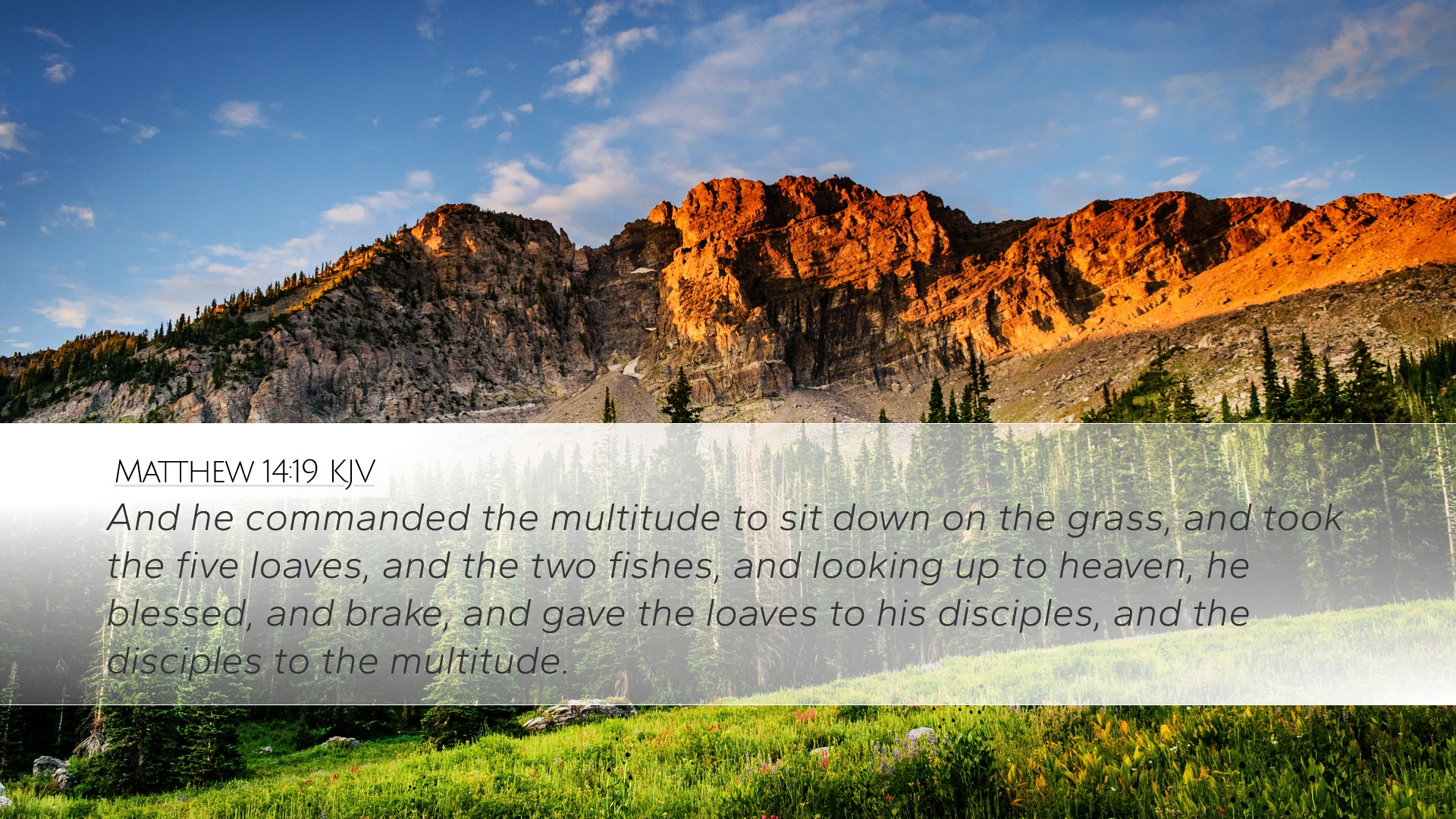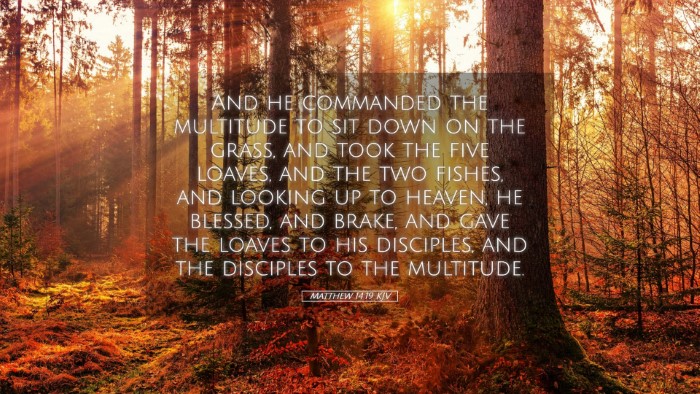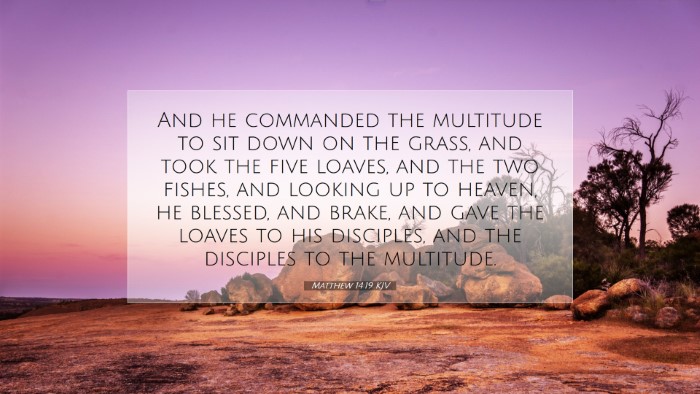Commentary on Matthew 14:19
Verse Context: Matthew 14:19 captures a pivotal moment in the ministry of Jesus as he performs the miracle of feeding the five thousand. This event illustrates not only the physical provision of God but also holds profound spiritual implications that resonate through the ages.
Text of Matthew 14:19
“And he directed the people to sit down on the grass; and taking the five loaves and the two fish, he looked up to heaven and said a blessing. Then he broke the loaves and gave them to the disciples, and the disciples gave them to the crowds.” (ESV)
Insights from Commentaries
1. Matthew Henry’s Commentary
Matthew Henry emphasizes the multitude gathered for Jesus’ teaching and the compassion He felt for them. The directive for the people to sit down signifies organization and preparation for the blessing that was about to unfold. Henry highlights Jesus' act of looking up to heaven, which reflects his dependence on the Father and acknowledgment of divine providence. The breaking of the loaves and fishes symbolizes not only the miraculous expansion of resources but also represents the spiritual nourishment found in Christ.
2. Albert Barnes' Notes on the Bible
Albert Barnes provides a detailed analysis of the components of this verse, particularly focusing on the significance of the “five loaves and two fish.” He remarks that this illustrates the principle that God can use what seems insufficient when placed in His hands. The act of blessing the food suggests a moment of prayer, indicating gratitude and recognition of God’s provision. Barnes notes that the disciples played an essential role in distribution, highlighting their function as ministers of God’s grace to the people. This reflects the church's mission to carry forth the blessings of Christ to the world.
3. Adam Clarke’s Commentary
Adam Clarke provides insight into the cultural and historical context of the passage. His consideration of the seating arrangement and the use of grass suggests a pastoral scene meant for comfort and a community environment. Clarke elaborates on the miraculous nature of the event and underscores the significance of faith in witnessing God’s miracles. He interprets the act of breaking and distributing as a representation of Christ’s body broken for humanity and the ongoing distribution of spiritual sustenance through His teachings and blessings.
Theological Reflections
This passage in Matthew 14:19 conveys essential theological concepts that resonate widely with various interpretations in Christian thought:
- The Sovereignty of God: The miracle underscores God’s sovereign ability to provide abundantly, no matter the circumstances.
- Christ's Compassion: Jesus’ concern for the physical needs of the people reflects God’s love and care for human suffering.
- Faith and Obedience: The role of the disciples in distributing the food symbolizes the active participation of believers in sharing the message and gifts of God.
Application for Ministry
For pastors, students, and theologians, Matthew 14:19 invites a deep exploration of how Jesus models leadership, compassion, and dependence on God. It suggests that in moments of need, leaning into divine provision rather than human limitations opens pathways for miracles. The call for believers to participate in the distribution of God's gifts remains a compelling instruction for modern ministry contexts.
Conclusion
In summary, Matthew 14:19 stands as a profound narrative of Jesus’ ministry, reflecting key spiritual and theological insights pivotal for understanding God’s work in the world. Through the contributions of public domain commentaries, we see a multi-faceted approach to this vital scripture, encouraging believers to trust in divine provision, engage in service, and recognize the abundance of God's grace.


